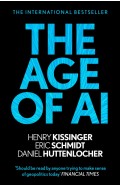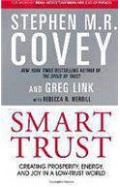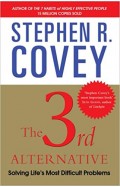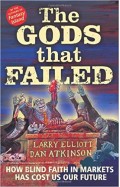- Home
- Non Fiction
- Business & Management
- Power and Progress: Our Thousand-Year Struggle Over Technology and Prosperity
Power and Progress: Our Thousand-Year Struggle Over Technology and Prosperity
By: Daron Acemoglu
-
Rs 4,315.50
- Rs 4,795.00
- 10%
You save Rs 479.50.
Due to constant currency fluctuation, prices are subject to change with or without notice.
'If you are not already an addict of Daron Acemoglu and Simon Johnson's previous books, Power and Progress is guaranteed to make you one' Jared Diamond
'A breathtaking tour of the history and future of technology' Abhijit Banerjee and Esther Duflo
A bold new interpretation of why technology has all too often benefited elites - and how we must reshape the path of innovation to create true shared prosperity.
A thousand years of history and contemporary evidence make one thing clear. Progress is not automatic but depends on the choices we make about technology. New ways of organizing production and communication can either serve the narrow interests of an elite or become the foundation for widespread prosperity.
Much of the wealth generated by agricultural advances during the European Middle Ages was captured by the Church and used to build grand cathedrals while the peasants starved. The first hundred years of industrialization in England delivered stagnant incomes for workers, while making a few people very rich. And throughout the world today, digital technologies and artificial intelligence increase inequality and undermine democracy through excessive automation, massive data collection, and intrusive surveillance.
It doesn't have to be this way. Power and Progress demonstrates that the path of technology was once - and can again be - brought under control. The tremendous computing advances of the last half century can become empowering and democratizing tools, but not if all major decisions remain in the hands of a few hubristic tech leaders striving to build a society that elevates their own power and prestige.
With their breakthrough economic theory and manifesto for a better society, Acemoglu and Johnson provide the understanding and the vision to reshape how we innovate and who really gains from technological advances so we can create real prosperity for all.
'If you are not already an addict of Daron Acemoglu and Simon Johnson's previous books, Power and Progress is guaranteed to make you one' Jared Diamond
'A breathtaking tour of the history and future of technology' Abhijit Banerjee and Esther Duflo
A bold new interpretation of why technology has all too often benefited elites - and how we must reshape the path of innovation to create true shared prosperity.
A thousand years of history and contemporary evidence make one thing clear. Progress is not automatic but depends on the choices we make about technology. New ways of organizing production and communication can either serve the narrow interests of an elite or become the foundation for widespread prosperity.
Much of the wealth generated by agricultural advances during the European Middle Ages was captured by the Church and used to build grand cathedrals while the peasants starved. The first hundred years of industrialization in England delivered stagnant incomes for workers, while making a few people very rich. And throughout the world today, digital technologies and artificial intelligence increase inequality and undermine democracy through excessive automation, massive data collection, and intrusive surveillance.
It doesn't have to be this way. Power and Progress demonstrates that the path of technology was once - and can again be - brought under control. The tremendous computing advances of the last half century can become empowering and democratizing tools, but not if all major decisions remain in the hands of a few hubristic tech leaders striving to build a society that elevates their own power and prestige.
With their breakthrough economic theory and manifesto for a better society, Acemoglu and Johnson provide the understanding and the vision to reshape how we innovate and who really gains from technological advances so we can create real prosperity for all.
The Narrow Corridor : How Nations Struggle for Liberty
By: Daron Acemoglu
Rs 2,460.75 Rs 2,895.00 Ex Tax :Rs 2,460.75
The Narrow Corridor - States, Societies, and the Fate of Liberty
By: Daron Acemoglu
Rs 3,415.50 Rs 3,795.00 Ex Tax :Rs 3,415.50
The Narrow Corridor: States, Societies, and the Fate of Liberty
By: Daron Acemoglu
Rs 1,695.75 Rs 1,995.00 Ex Tax :Rs 1,695.75
Power and Progress: Our Thousand-Year Struggle Over Technology and Prosperity
By: Daron Acemoglu
Rs 4,315.50 Rs 4,795.00 Ex Tax :Rs 4,315.50
Zubin Mehta: A Musical Journey (An Authorized Biography)
By: VOID - Bakhtiar K. Dadabhoy
Rs 892.50 Rs 1,050.00 Ex Tax :Rs 892.50
Agent Sonya: The True Story of WW2s Most Extraordinary Spy
By: Ben Macintyre
Rs 1,950.75 Rs 2,295.00 Ex Tax :Rs 1,950.75
The Age of AI: "THE BOOK WE ALL NEED"
By: Henry A. Kissinger
Rs 2,515.50 Rs 2,795.00 Ex Tax :Rs 2,515.50
The Travelling Cat Chronicles: The life-affirming one million copy bestseller
By: Hiro Arikawa
Rs 2,245.50 Rs 2,495.00 Ex Tax :Rs 2,245.50
Military Inc. - Second Edition: Inside Pakistan's Military Economy
By: Ayesha Siddiqa
Rs 7,195.50 Rs 7,995.00 Ex Tax :Rs 7,195.50
The Black Swan The Impact Of The Highly Improbable
By: Nassim Nicholas Taleb
Rs 2,965.50 Rs 3,295.00 Ex Tax :Rs 2,965.50
Inside Apple How Americas Mo Admired And Secretive Company Really Works
By: Adam Lashinsky
Rs 1,147.50 Rs 1,350.00 Ex Tax :Rs 1,147.50
Buyology How Everything We Believe About Why We Buy Is Wrong
By: Martin Lindstrom
Rs 2,695.50 Rs 2,995.00 Ex Tax :Rs 2,695.50
The 3rd Alternative Solving Life s Most Difficult Problems
By: Stephen Covey
Rs 675.75 Rs 795.00 Ex Tax :Rs 675.75
Building Social Business The New Kind Of Capitalism That Serves Humanitys Most Pressing Needs
By: Muhammad Yunus
Rs 400.00 Ex Tax :Rs 400.00
Agent Sonya: The True Story of WW2s Most Extraordinary Spy
By: Ben Macintyre
Rs 1,950.75 Rs 2,295.00 Ex Tax :Rs 1,950.75
The Age of AI: "THE BOOK WE ALL NEED"
By: Henry A. Kissinger
Rs 2,515.50 Rs 2,795.00 Ex Tax :Rs 2,515.50
The Travelling Cat Chronicles: The life-affirming one million copy bestseller
By: Hiro Arikawa
Rs 2,245.50 Rs 2,495.00 Ex Tax :Rs 2,245.50
Military Inc. - Second Edition: Inside Pakistan's Military Economy
By: Ayesha Siddiqa
Rs 7,195.50 Rs 7,995.00 Ex Tax :Rs 7,195.50
The Ultimate Sales Machine - Turbocharge Your Business with Relentless Focus on 12 Key Strategies
By: Chet Holmes
Rs 3,595.50 Rs 3,995.00 Ex Tax :Rs 3,595.50
Decoding Logos: From LOGO Design to Branding
By: Shaoqiang Wang
Rs 8,095.50 Rs 8,995.00 Ex Tax :Rs 8,095.50
The Mind of the Islamic State Isis and the Ideology of the Caliphate
By: Robert Manne
Rs 1,447.50 Rs 2,895.00 Ex Tax :Rs 1,447.50
Primary Dictionary: Illustrated Dictionary for Ages 7+ (Collins Primary Dictionaries)
By: Collins Dictionaries
Rs 3,775.50 Rs 4,195.00 Ex Tax :Rs 3,775.50
The Key to Happiness: How to Find Purpose by Unlocking the Secrets of the Worlds Happiest People
By: Meik Wiking
Rs 1,100.75 Rs 1,295.00 Ex Tax :Rs 1,100.75
Hooked on Shakespeare - Crochet Projects Inspired by The Bard
By: Gurinder Kaur Hatchard
Rs 3,225.75 Rs 3,795.00 Ex Tax :Rs 3,225.75
Where's Wally? Days Out: Colouring Book
By: Martin Handford
Rs 1,440.75 Rs 1,695.00 Ex Tax :Rs 1,440.75
Zubin Mehta: A Musical Journey (An Authorized Biography)
By: VOID - Bakhtiar K. Dadabhoy
Rs 892.50 Rs 1,050.00 Ex Tax :Rs 892.50
The Narrow Corridor : How Nations Struggle for Liberty
By: Daron Acemoglu
Rs 2,460.75 Rs 2,895.00 Ex Tax :Rs 2,460.75
The Narrow Corridor - States, Societies, and the Fate of Liberty
By: Daron Acemoglu
Rs 3,415.50 Rs 3,795.00 Ex Tax :Rs 3,415.50
The Narrow Corridor: States, Societies, and the Fate of Liberty
By: Daron Acemoglu
Rs 1,695.75 Rs 1,995.00 Ex Tax :Rs 1,695.75
Power and Progress: Our Thousand-Year Struggle Over Technology and Prosperity
By: Daron Acemoglu
Rs 4,315.50 Rs 4,795.00 Ex Tax :Rs 4,315.50
Agent Sonya: The True Story of WW2s Most Extraordinary Spy
By: Ben Macintyre
Rs 1,950.75 Rs 2,295.00 Ex Tax :Rs 1,950.75
The Age of AI: "THE BOOK WE ALL NEED"
By: Henry A. Kissinger
Rs 2,515.50 Rs 2,795.00 Ex Tax :Rs 2,515.50
The Travelling Cat Chronicles: The life-affirming one million copy bestseller
By: Hiro Arikawa
Rs 2,245.50 Rs 2,495.00 Ex Tax :Rs 2,245.50
Military Inc. - Second Edition: Inside Pakistan's Military Economy
By: Ayesha Siddiqa
Rs 7,195.50 Rs 7,995.00 Ex Tax :Rs 7,195.50












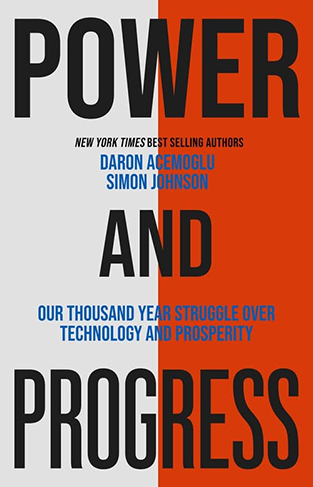

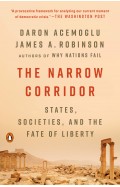

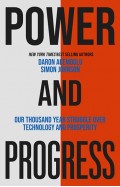
-120x187.jpg?q6)






